Abstract
We examined the functional role of verbalizations in the generalization of self-instructional training with preschoolers. Children learned to overtly self-instruct during classroom work periods prior to covert training. Data were collected on children's acquisition of verbal regulation during training and on overt use of self-instructions in the classroom generalization setting. Results of a multiple baseline design across subjects indicated that treatment effects were evident in the training setting but did not generalize to the classroom until children were emitting overt self-instructions in the classroom itself. The production of self-verbalizations in the generalization setting was related to changes in correct responding, on-task behavior, and efficiency in completing academic work.
Keywords: verbal regulation, self-instruction, generalization, self-control, preschool children
Full text
PDF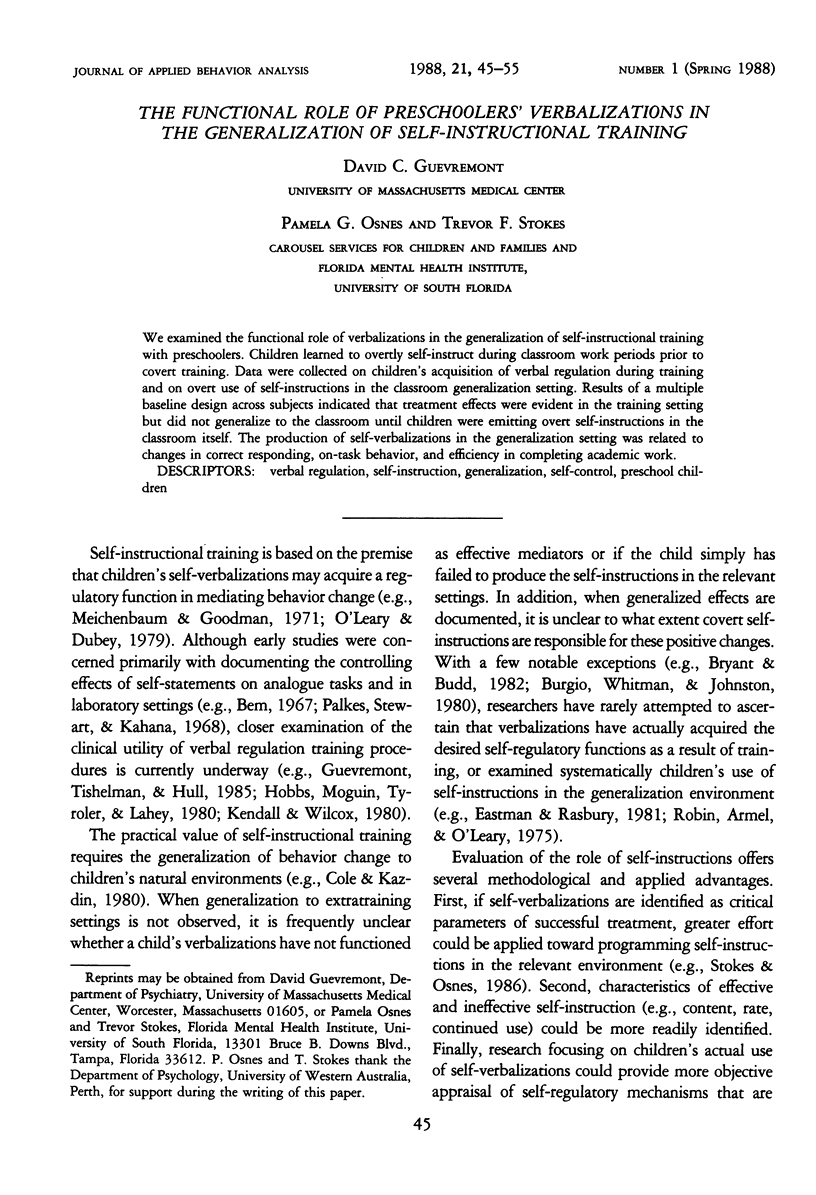
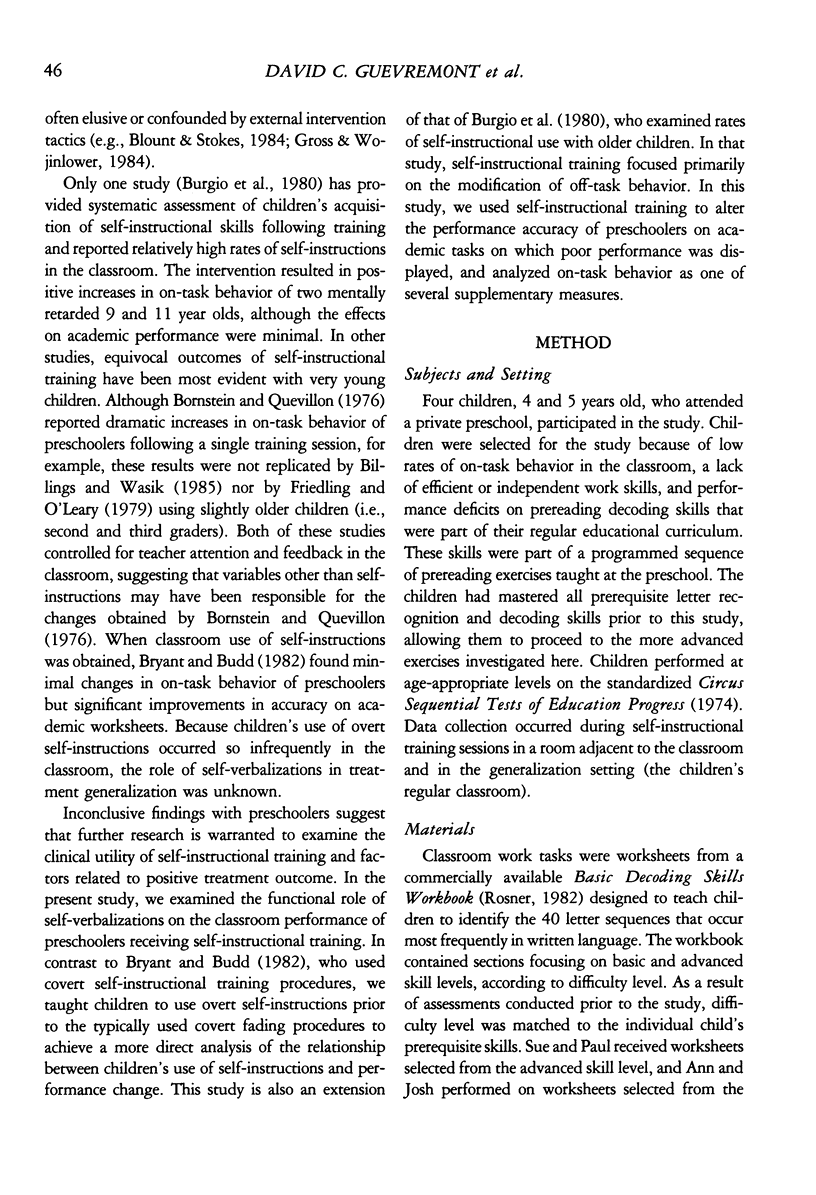
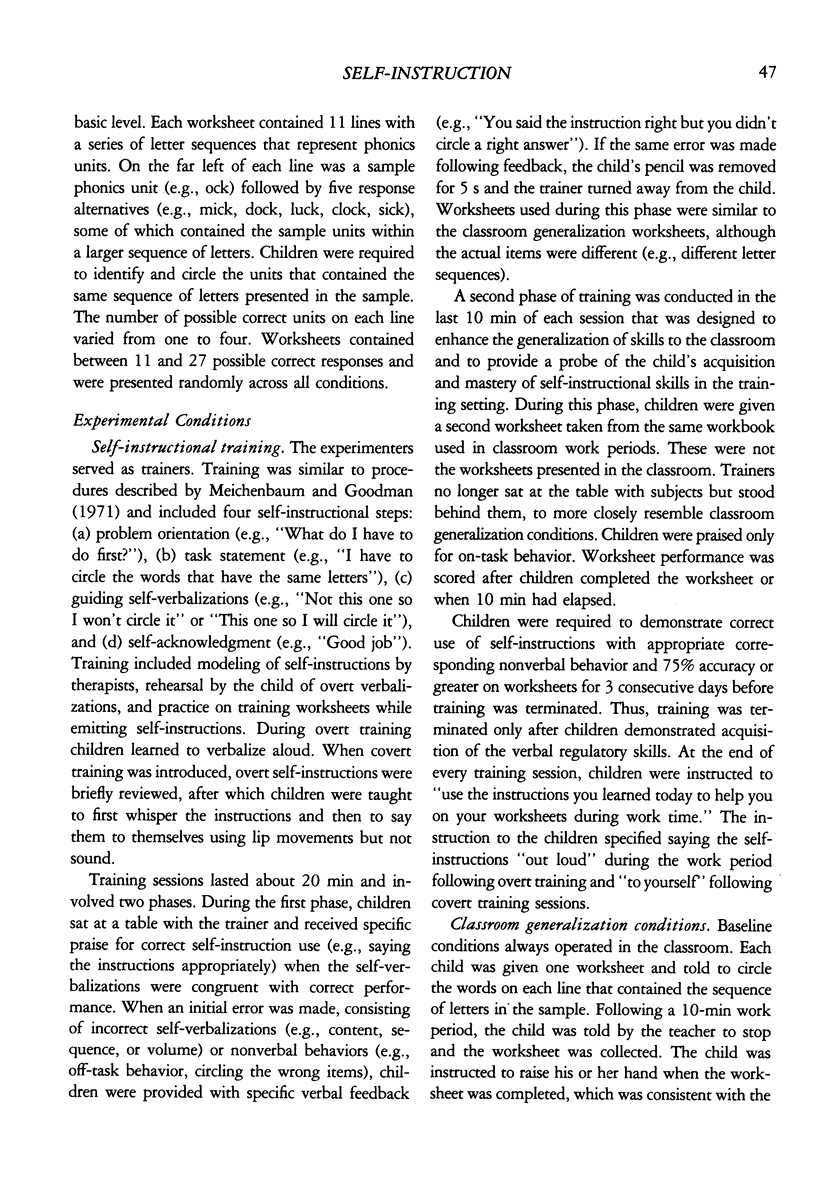
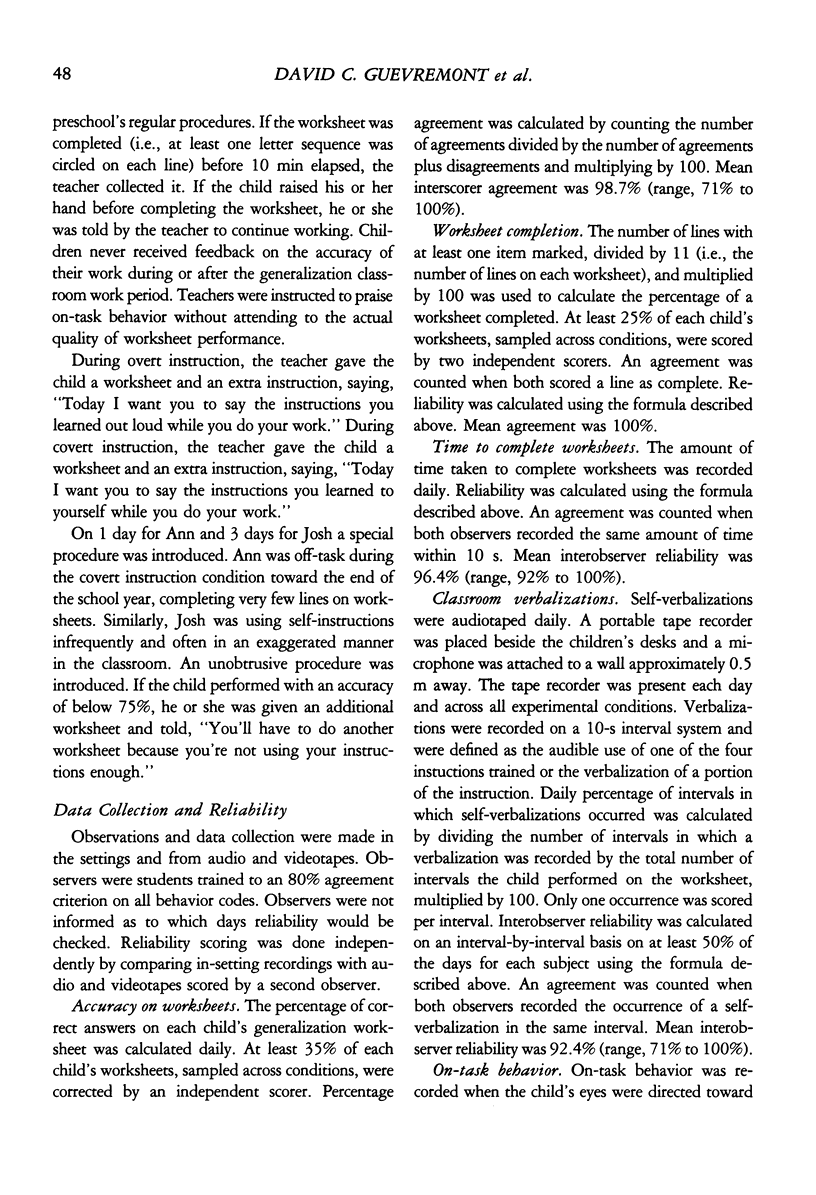
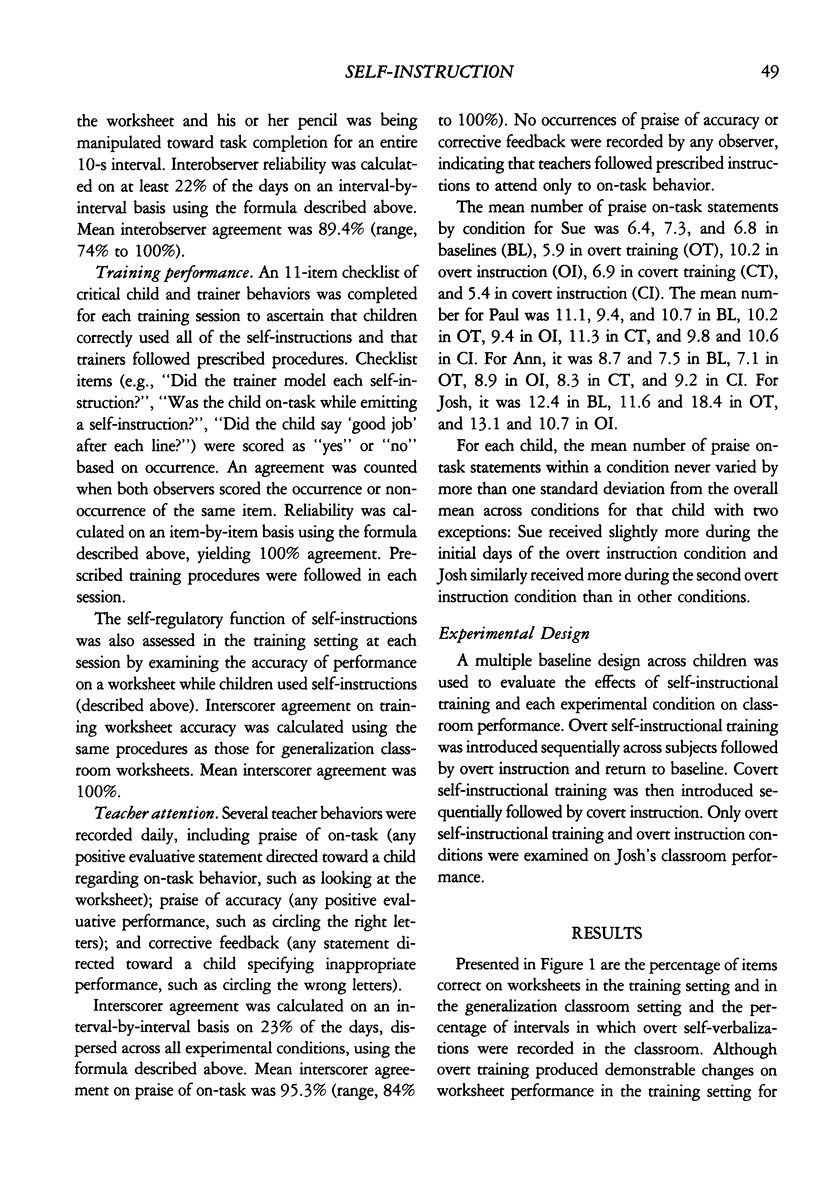
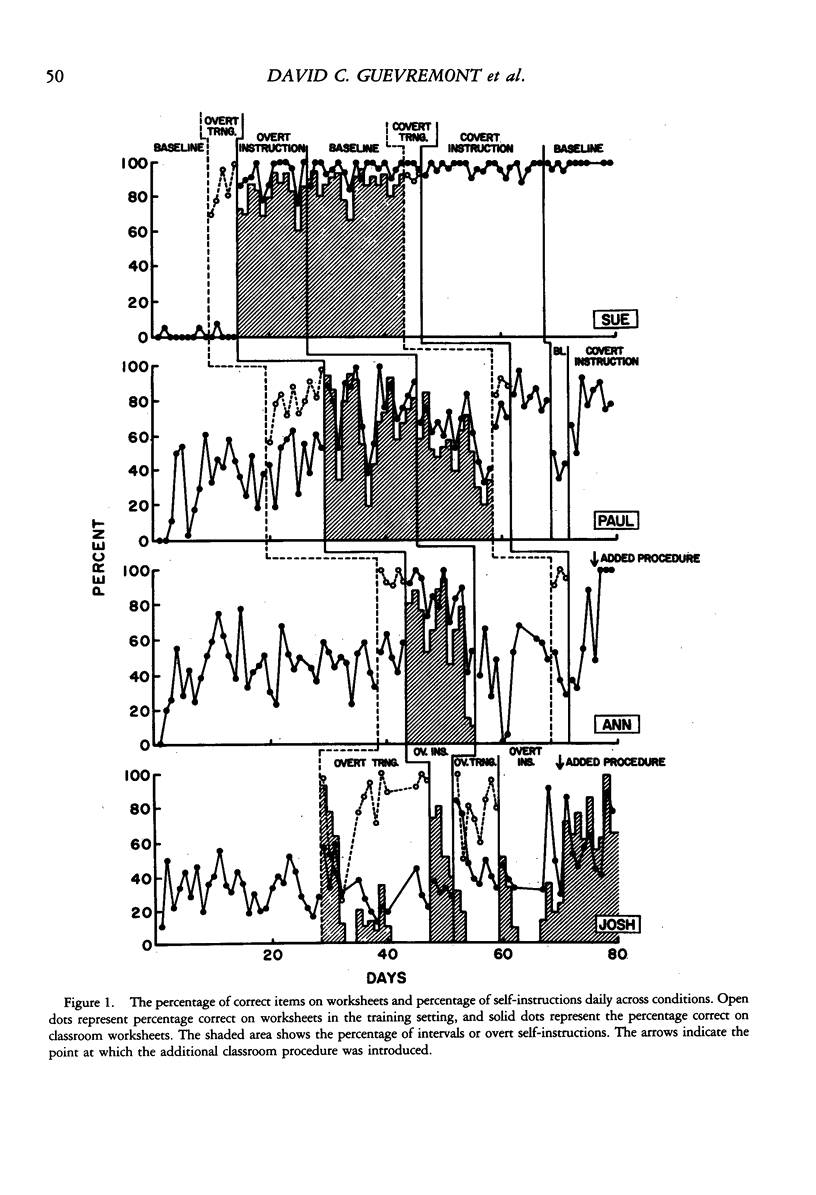
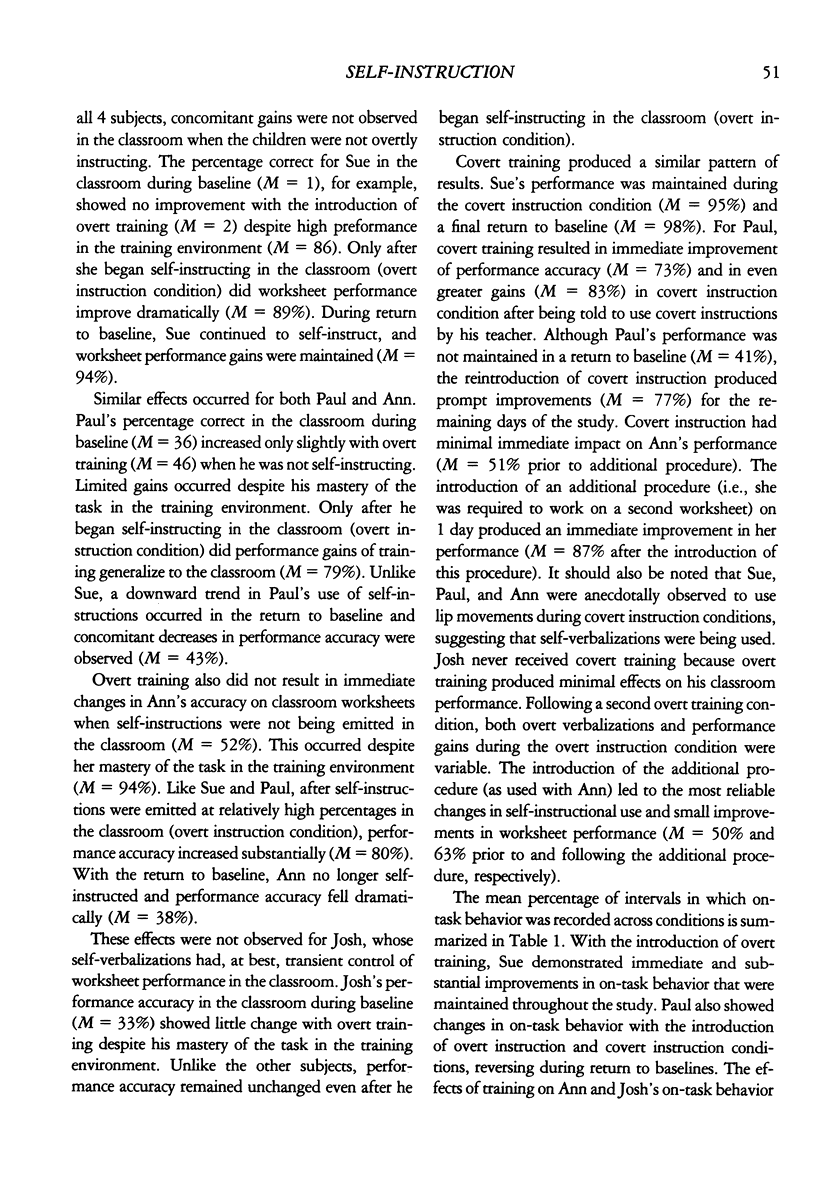
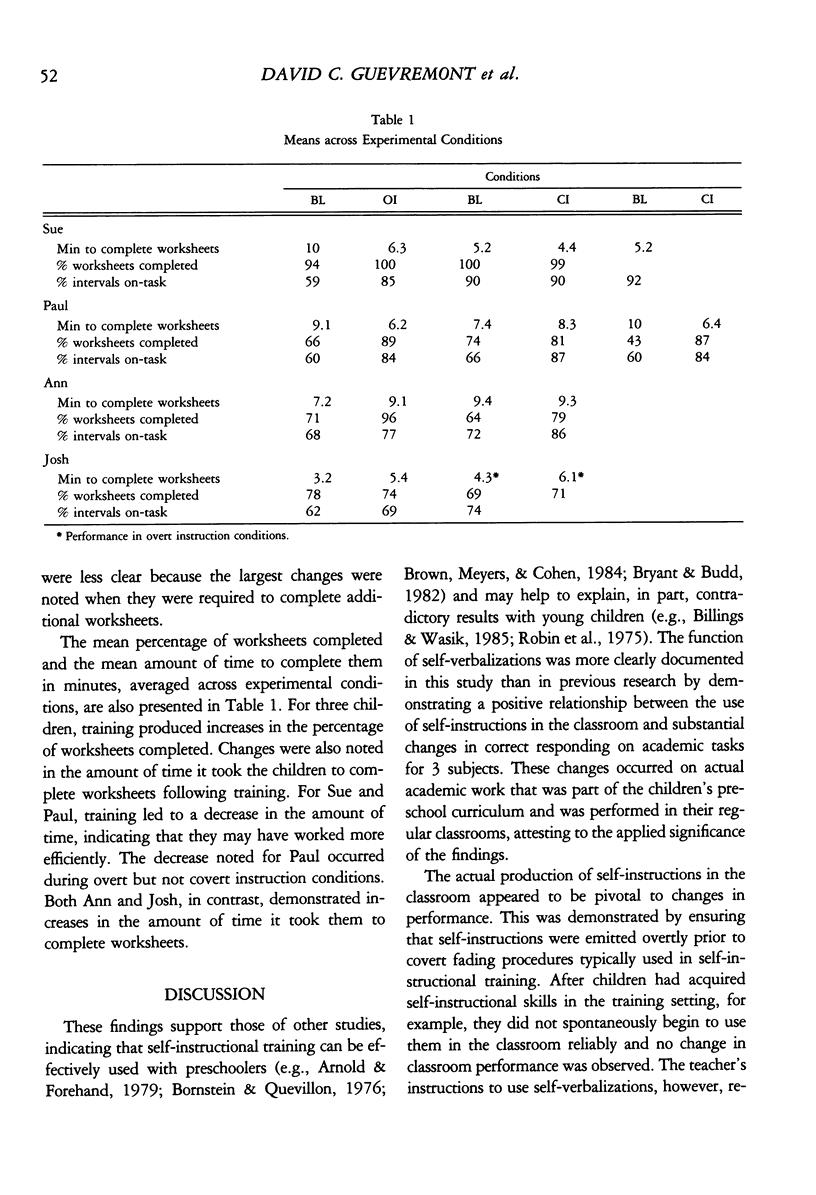
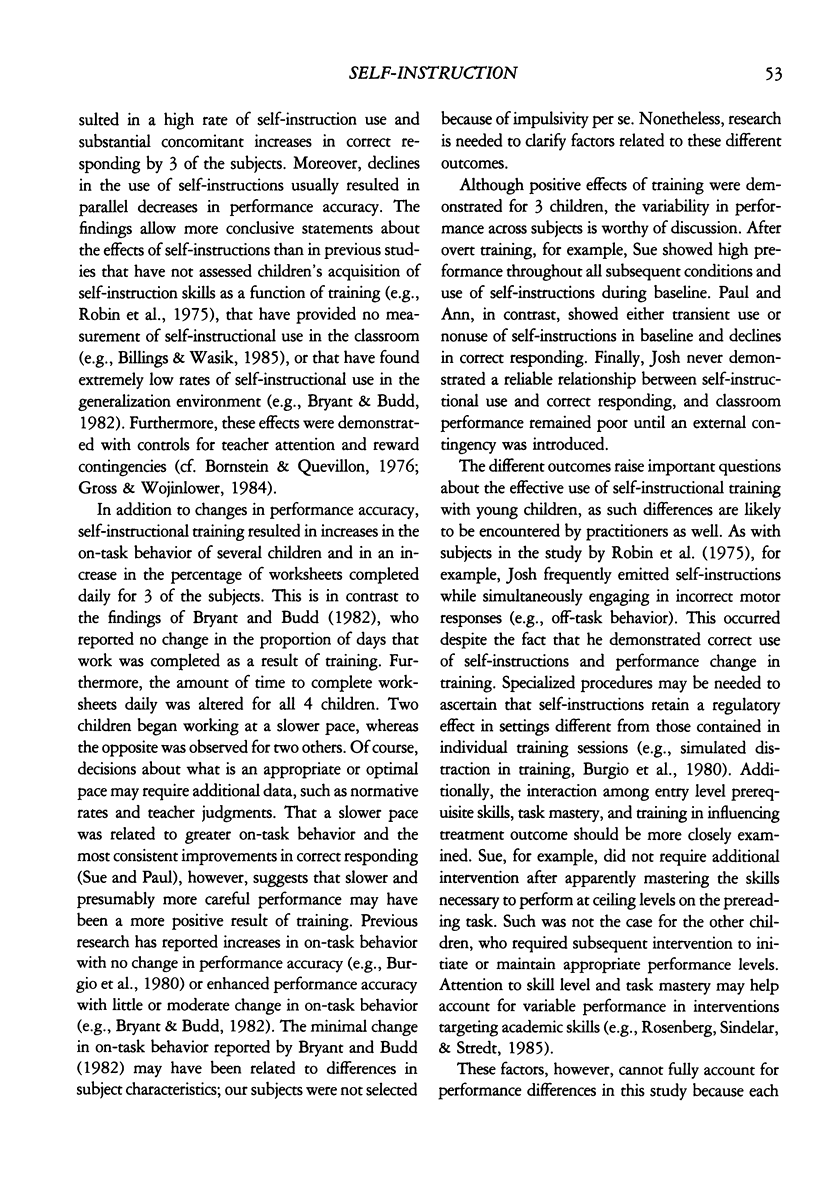
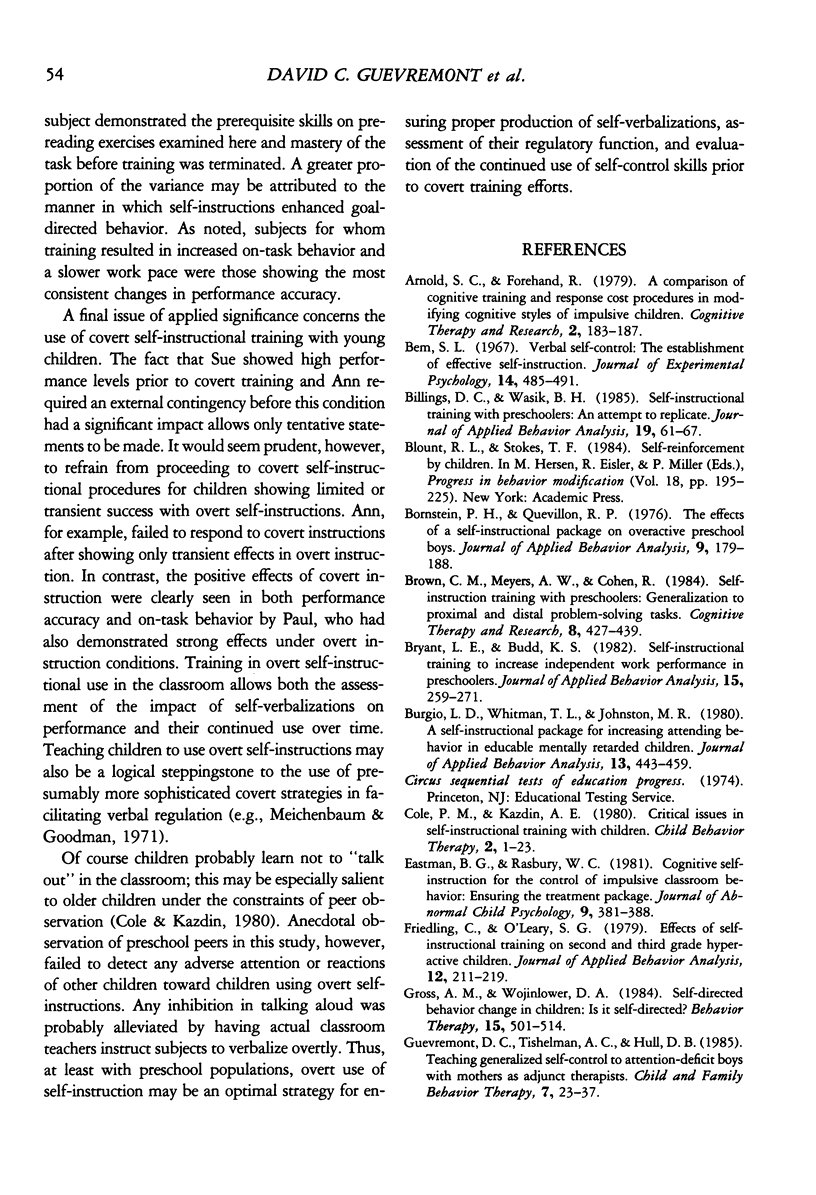
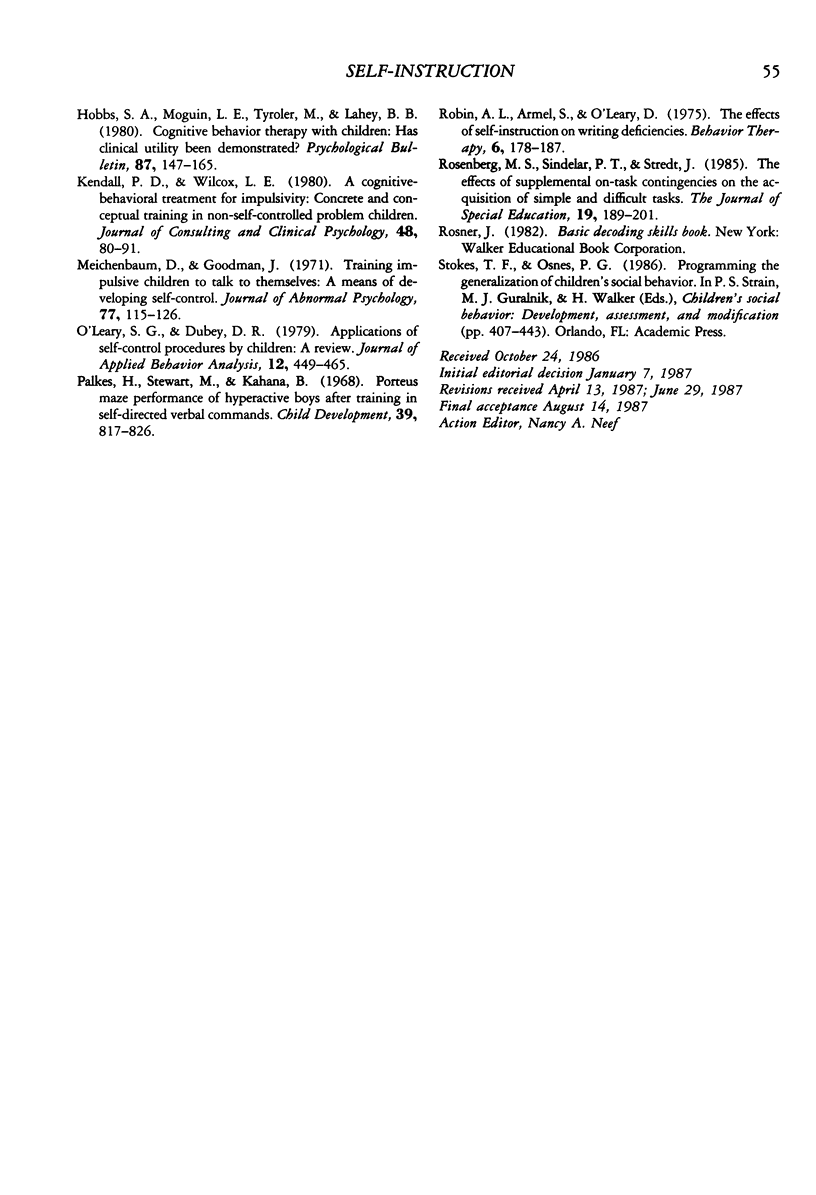
Selected References
These references are in PubMed. This may not be the complete list of references from this article.
- Billings D. C., Wasik B. H. Self-instructional training with preschoolers: an attempt to replicate. J Appl Behav Anal. 1985 Spring;18(1):61–67. doi: 10.1901/jaba.1985.18-61. [DOI] [PMC free article] [PubMed] [Google Scholar]
- Bornstein P. H., Quevillon R. P. The effects of a self-instructional package on overactive preschool boys. J Appl Behav Anal. 1976 Summer;9(2):179–188. doi: 10.1901/jaba.1976.9-179. [DOI] [PMC free article] [PubMed] [Google Scholar]
- Bryant L. E., Budd K. S. Self-instructional training to increase independent work performance in preschoolers. J Appl Behav Anal. 1982 Summer;15(2):259–271. doi: 10.1901/jaba.1982.15-259. [DOI] [PMC free article] [PubMed] [Google Scholar]
- Burgio L. D., Whitman T. L., Johnson M. R. A self-instructional package for increasing attending behavior in educable mentally retarded children. J Appl Behav Anal. 1980 Fall;13(3):443–459. doi: 10.1901/jaba.1980.13-443. [DOI] [PMC free article] [PubMed] [Google Scholar]
- Eastman B. G., Rasbury W. C. Cognitive self-instruction for the control of impulsive classroom behavior: ensuring the treatment package. J Abnorm Child Psychol. 1981 Sep;9(3):381–387. doi: 10.1007/BF00916842. [DOI] [PubMed] [Google Scholar]
- Friedling C., O'Leary S. G. Effects of self-instructional training on second- and third-grade hyperactive children: a failure to replicate. J Appl Behav Anal. 1979 Summer;12(2):211–219. doi: 10.1901/jaba.1979.12-211. [DOI] [PMC free article] [PubMed] [Google Scholar]
- Hobbs S. A., Moguin L. E., Tyroler M., Lahey B. B. Cognitive behavior therapy with children: has clinical utility been demonstrated? Psychol Bull. 1980 Jan;87(1):147–165. [PubMed] [Google Scholar]
- Kendall P. C., Wilcox L. E. Cognitive-behavioral treatment for impulsivity: concrete versus conceptual training in non-self-controlled problem children. J Consult Clin Psychol. 1980 Feb;48(1):80–91. doi: 10.1037//0022-006x.48.1.80. [DOI] [PubMed] [Google Scholar]
- Meichenbaum D. H., Goodman J. Training impulsive children to talk to themselves: a means of developing self-control. J Abnorm Psychol. 1971 Apr;77(2):115–126. doi: 10.1037/h0030773. [DOI] [PubMed] [Google Scholar]
- O'Leary S. G., Dubey D. R. Applications of self-control procedures by children: a review. J Appl Behav Anal. 1979 Fall;12(3):449–465. doi: 10.1901/jaba.1979.12-449. [DOI] [PMC free article] [PubMed] [Google Scholar]
- Palkes H., Stewart M., Kahana B. Porteus maze performance of hyperactive boys after training in self-directed verbal commands. Child Dev. 1968 Sep;39(3):817–826. [PubMed] [Google Scholar]


